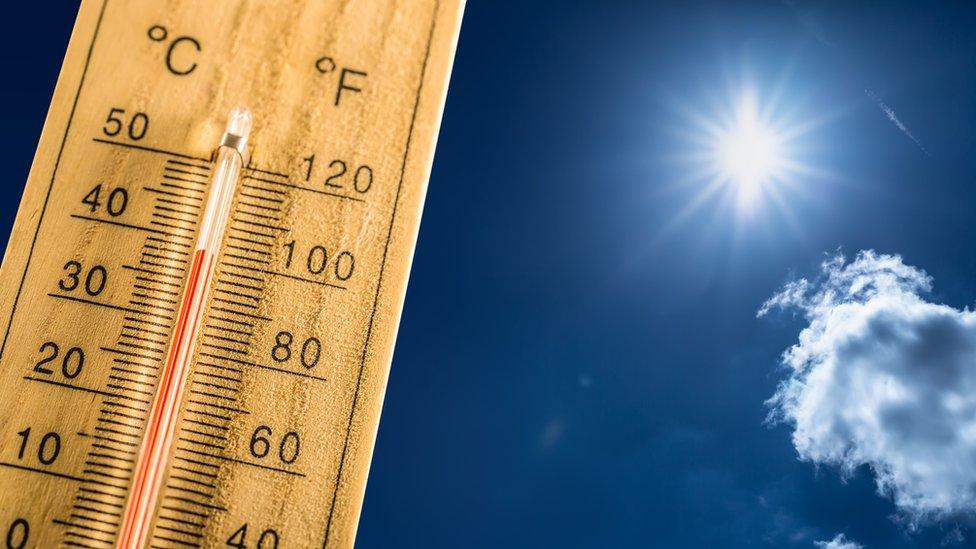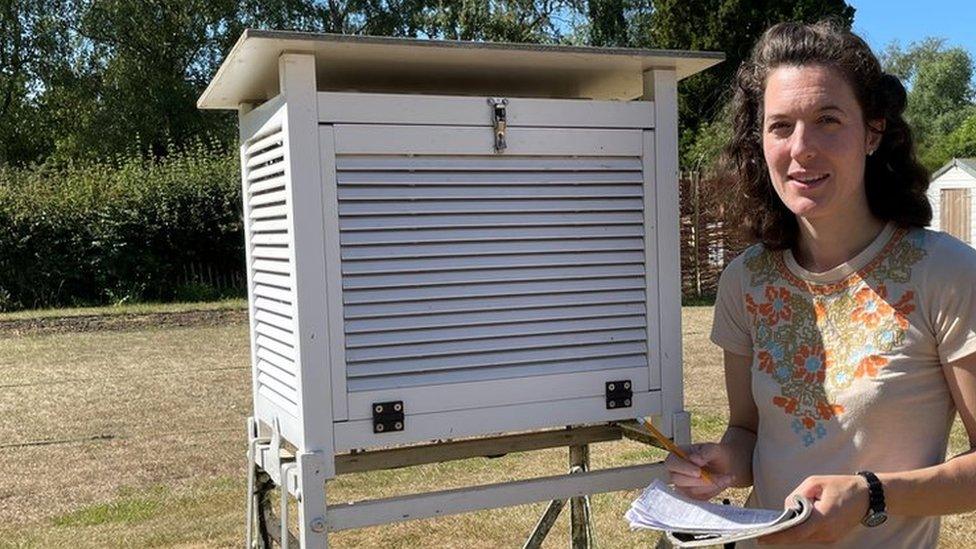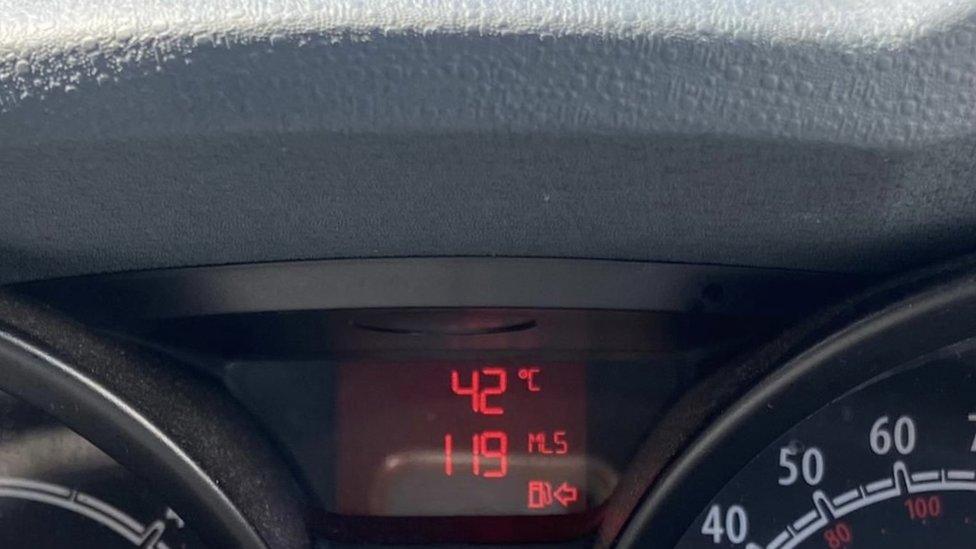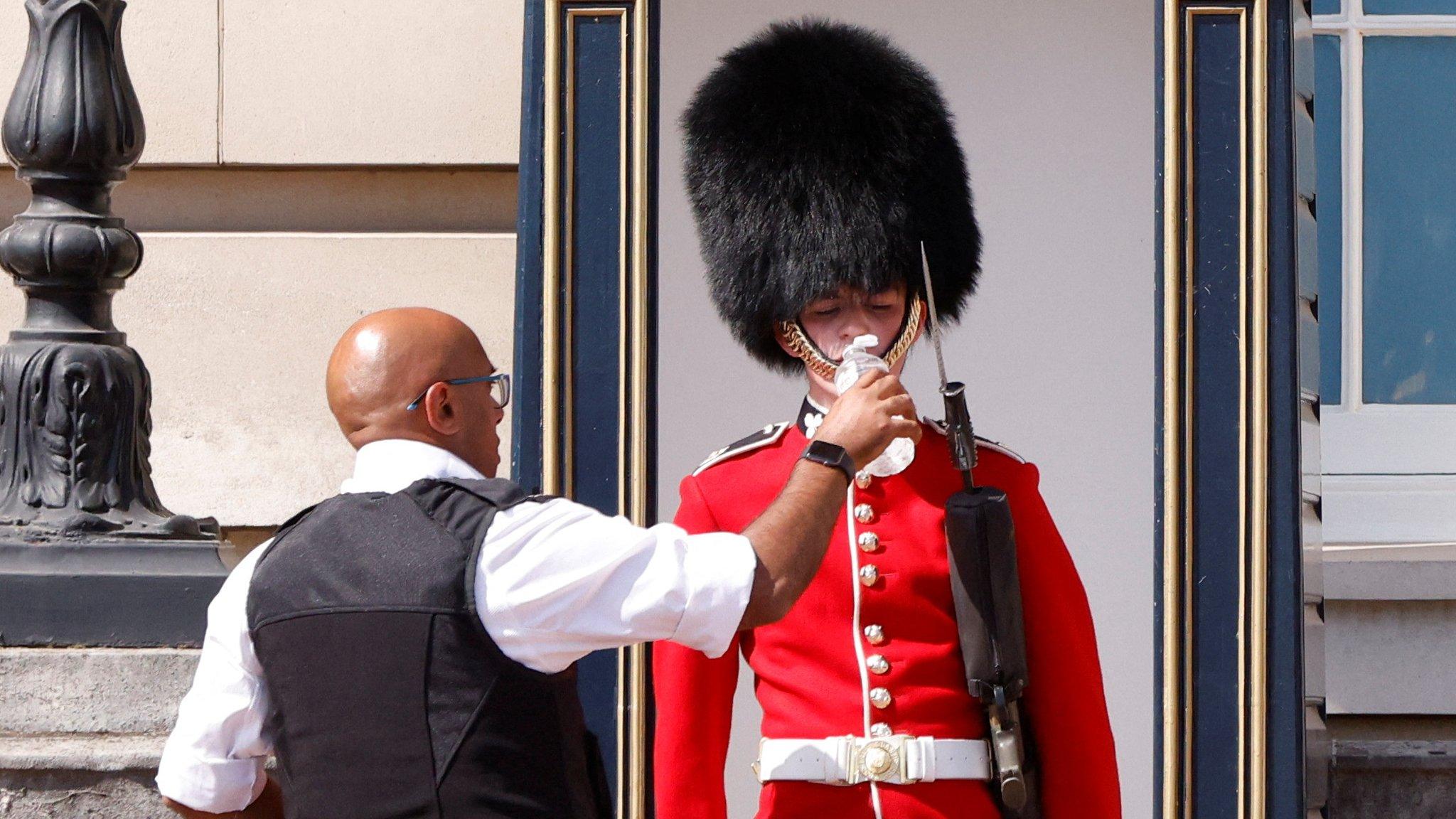UK Heatwave: How temperature is measured
- Published
- comments

The UK hit its hottest temperature on record on Tuesday, with 40.3C recorded at Coningsby in Lincolnshire, according to provisional Met Office data.
You will have seen different places in the UK recording different temperatures over the last few days, but how is it measured?
Temperature is a measure of how hot something is and when it comes to measuring the weather, experts usually want to know what the temperature of the air is.
But there are certain rules they have to follow to make sure the temperature measured is accurate.
How is official temperature recorded?
To accurately measure air temperature you must use a special device, called a thermometer.
It measures the temperature in either Celsius or Fahrenheit. In the UK we use Celsius which is often just shortened to a C.
There are many different types of thermometer - one type has liquid in a glass tube which rises as it gets hotter.
The Met Office, the UK's national weather service uses a platinum resistance thermometer (PRT).
This has a piece of platinum wire which finds out the temperature by measuring its electrical resistance.

Katie Martyr, assistant horticulturist, at the weather station in Cambridge's Botanic Garden
Official temperature records are only recognised by a thermometer placed in a special box elevated above ground called a Stevenson screen.
These weather boxes are placed in the shade above a natural surface like grass.
They are painted white to reflect as much of the Sun's heat as possible, and have holes for ventilation.
Why do some thermometers show a higher temperature than official recordings?

The high temperature in a car is usually because it is recording the surface temperature of the car instead of the air
If you've been in a car recently and noticed the car thermometer shows a higher temperature than official temperatures given, that could be because if the car has been sitting in the heat.
The car itself has been heating up so the temperature taken is the car temperature and not the air temperature.
How can you check what the air temperature is?
Heatwave: Why is the UK so hot at the moment?
If you have a thermometer, BBC Weather's Sarah Keith-Lucas has some tips for measuring the air's temperature.
1. The thermometer needs to be positioned in constant shade
If it's not in the shade the sun will warm the temperature of the thermometer and you'll get a reading of the thermometer and not the air.
2. Keep away from buildings and concrete
Different surfaces give off heat at different rates says Sarah so it's best to keep the thermometer away from buildings.
3. Position it about 1.5 m above the ground
The best place is above grass as this avoids the warming or cooling effect of the ground below.
- Published29 July 2024

- Published19 July 2022

